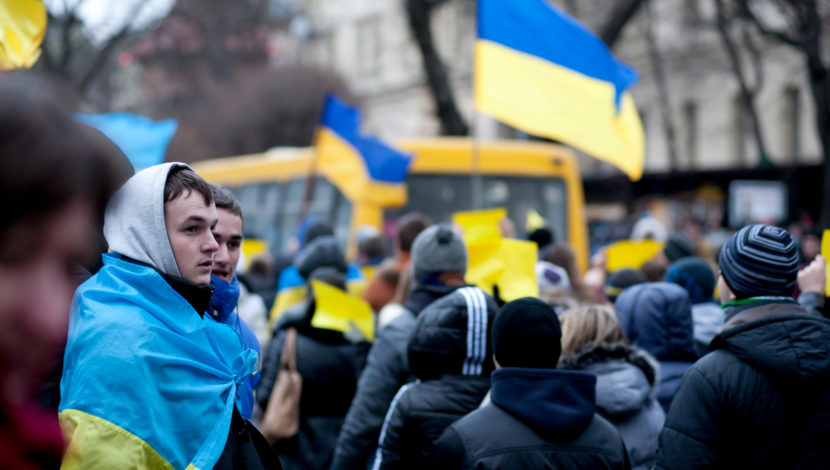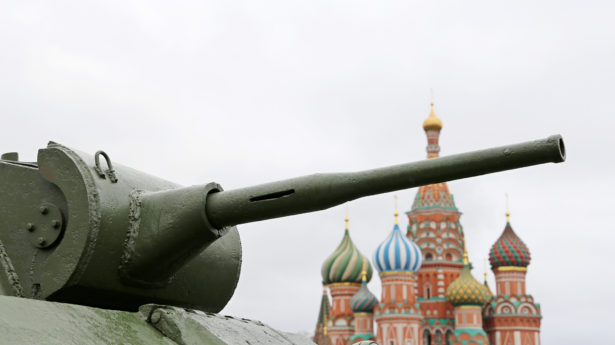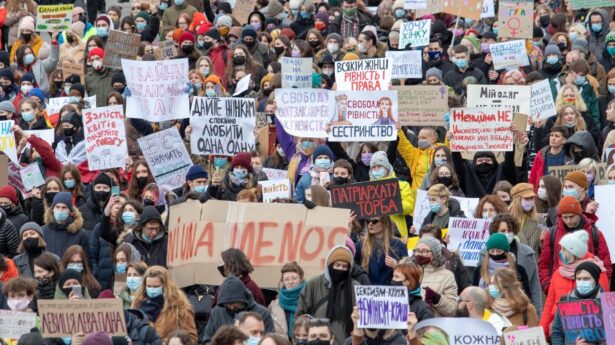The Unitarian Universalist Service Committee advances human rights through grassroots collaborations.
Genocide: Understanding a Word With Consequences (Part One)

April 22, 2022
April is Genocide Awareness Month, a month when advocates around the world seek to educate the public about the crime of genocide and work to stop it. This is the first part of a two-part blog series explaining the concept of genocide and its legal implications.
***
In a recent visit to Iowa, President Joe Biden used the word “genocide” for the first time to describe Russian President Vladimir Putin’s actions in Ukraine. His use of this word surprised many listeners, in the U.S. and abroad. If nothing else, it represented a major change from Biden’s earlier public stance.
But when Biden was asked later whether he stood by his characterization of Putin’s actions, he doubled down, saying: “It sure seems that way to me.” Biden clarified, however, that this was only his personal view, not the official stance of his administration. He added: “We’ll let the lawyers decide internationally whether or not it qualifies [as genocide].”
The President was right to add these caveats. Genocide is a word with a specific legal definition and it can’t be used hastily. An official finding of genocide comes with legal consequences and obligations that the U.S. government must fulfill.
As we are in the midst of Genocide Awareness Month, commemorated every April, it is fitting that we take a moment to ponder the real meaning of this powerful word, and what the administration’s uses of the term in different contexts might oblige them to do.
Is Putin really committing a genocide? It’s probably too soon to tell.
To be clear, Putin’s aggressive invasion of Ukraine was a criminal act, staged in violation of the United Nations Charter. Recent weeks have also brought to light shocking reports of Russian war crimes in Ukraine, including satellite images appearing to show mass graves in the besieged city of Mariupol, where thousands of civilians have died as a result of the invasion. And while Putin tries to sow disinformation and doubt about these events, mounting evidence confirms Russian forces’ culpability for these atrocities.
Putin’s guilt is indisputable, and the human costs of his aggression are already vast. This is why UUSC has launched our humanitarian appeal and response to aid people displaced by Putin’s war.
To meet the specific definition of genocide, however, requires more than a showing of war crimes.
After all, genocide is a specific crime under international law with a specific meaning. According to the UN Genocide Convention, it is defined as “the following acts committed with intent to destroy, in whole or in part, a national, ethnical, racial or religious group, as such:
(a) Killing members of the group;
(b) Causing serious bodily or mental harm to members of the group;
(c) Deliberately inflicting on the group conditions of life calculated to bring about its physical destruction in whole or in part;
(d) Imposing measures intended to prevent births within the group;
(e) Forcibly transferring children of the group to another group.”
As we see, the definition of genocide involves more than the commission of atrocities. It also requires a showing of intent—behind these atrocities—to destroy a group of people, in whole or in part, precisely because they constitute that group of people. The mass murder of European Jews in the Holocaust and of Armenians in the Ottoman Empire during World War I are textbook examples of genocide.
Whether Putin’s actions in Ukraine might ultimately constitute genocide is not yet known. Sadly, the war is far from over, and the evidence that would be needed to reach such a determination is not all available. (We certainly know that Putin’s actions in Ukraine are despicable, regardless of the specific term we use to name them.)
However international law ultimately settles these questions, the legal status of one genocide is no longer in dispute: the 2017 mass murder and forced expulsion of the Rohingya people from the Southeast Asian country of Burma (Myanmar).
In part two of this series, we discuss the administration’s recent decision to acknowledge the reality of this genocide and what legal implications that will have for the administration’s next moves.
****
Photo Credit—Kentarcajuan

